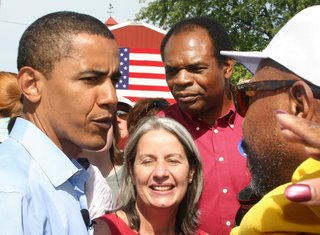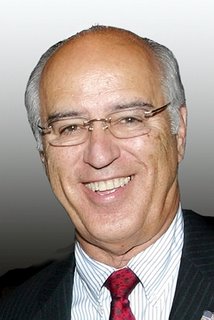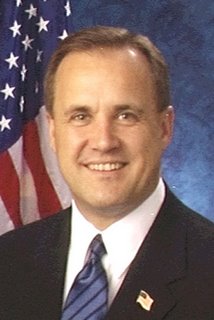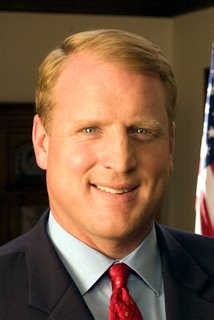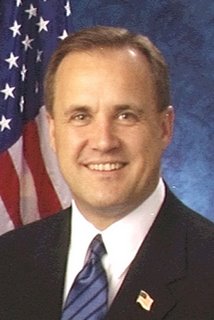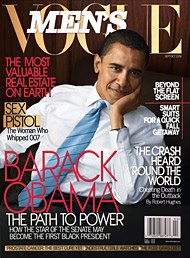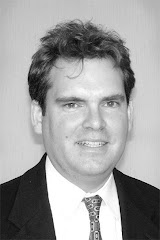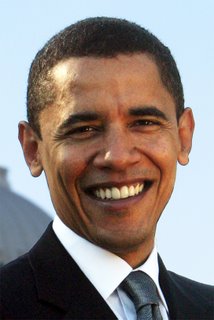
Washington, DC
Good morning. I appreciate the opportunity to speak here at the Call to Renewal's Building a Covenant for a New America conference. I've had the opportunity to take a look at your Covenant for a New America. It is filled with outstanding policies and prescriptions for much of what ails this country. So I'd like to congratulate you all on the thoughtful presentations you've given so far about poverty and justice in America, and for putting fire under the feet of the political leadership here in Washington.
But today I'd like to talk about the connection between religion and politics and perhaps offer some thoughts about how we can sort through some of the often bitter arguments that we've been seeing over the last several years.
I do so because, as you all know, we can affirm the importance of poverty in the Bible; and we can raise up and pass out this Covenant for a New America. We can talk to the press, and we can discuss the religious call to address poverty and environmental stewardship all we want, but it won't have an impact unless we tackle head-on the mutual suspicion that sometimes exists between religious America and secular America.
I want to give you an example that I think illustrates this fact. As some of you know, during the 2004 U.S. Senate General Election I ran against a gentleman named Alan Keyes. Mr. Keyes is well-versed in the Jerry Falwell-Pat Robertson style of rhetoric that often labels progressives as both immoral and godless.
Indeed, Mr. Keyes announced towards the end of the campaign that, "Jesus Christ would not vote for Barack Obama. Christ would not vote for Barack Obama because Barack Obama has behaved in a way that it is inconceivable for Christ to have behaved."
Jesus Christ would not vote for Barack Obama.
Now, I was urged by some of my liberal supporters not to take this statement seriously, to essentially ignore it. To them, Mr. Keyes was an extremist, and his arguments not worth entertaining. And since at the time, I was up 40 points in the polls, it probably wasn't a bad piece of strategic advice.
But what they didn't understand, however, was that I had to take Mr. Keyes seriously, for he claimed to speak for my religion, and my God. He claimed knowledge of certain truths.
Mr. Obama says he's a Christian, he was saying, and yet he supports a lifestyle that the Bible calls an abomination.
Mr. Obama says he's a Christian, but supports the destruction of innocent and sacred life.
And so what would my supporters have me say? How should I respond? Should I say that a literalist reading of the Bible was folly? Should I say that Mr. Keyes, who is a Roman Catholic, should ignore the teachings of the Pope?
Unwilling to go there, I answered with what has come to be the typically liberal response in such debates - namely, I said that we live in a pluralistic society, that I can't impose my own religious views on another, that I was running to be the U.S. Senator of Illinois and not the Minister of Illinois.
But Mr. Keyes's implicit accusation that I was not a true Christian nagged at me, and I was also aware that my answer did not adequately address the role my faith has in guiding my own values and my own beliefs.
Now, my dilemma was by no means unique. In a way, it reflected the broader debate we've been having in this country for the last thirty years over the role of religion in politics.
For some time now, there has been plenty of talk among pundits and pollsters that the political divide in this country has fallen sharply along religious lines. Indeed, the single biggest "gap" in party affiliation among white Americans today is not between men and women, or those who reside in so-called Red States and those who reside in Blue, but between those who attend church regularly and those who don't.
Conservative leaders have been all too happy to exploit this gap, consistently reminding evangelical Christians that Democrats disrespect their values and dislike their Church, while suggesting to the rest of the country that religious Americans care only about issues like abortion and gay marriage; school prayer and intelligent design.
Democrats, for the most part, have taken the bait. At best, we may try to avoid the conversation about religious values altogether, fearful of offending anyone and claiming that - regardless of our personal beliefs - constitutional principles tie our hands. At worst, there are some liberals who dismiss religion in the public square as inherently irrational or intolerant, insisting on a caricature of religious Americans that paints them as fanatical, or thinking that the very word "Christian" describes one's political opponents, not people of faith.
Now, such strategies of avoidance may work for progressives when our opponent is Alan Keyes. But over the long haul, I think we make a mistake when we fail to acknowledge the power of faith in people's lives -- in the lives of the American people -- and I think it's time that we join a serious debate about how to reconcile faith with our modern, pluralistic democracy.
And if we're going to do that then we first need to understand that Americans are a religious people. 90 percent of us believe in God, 70 percent affiliate themselves with an organized religion, 38 percent call themselves committed Christians, and substantially more people in America believe in angels than they do in evolution.
This religious tendency is not simply the result of successful marketing by skilled preachers or the draw of popular mega-churches. In fact, it speaks to a hunger that's deeper than that - a hunger that goes beyond any particular issue or cause.
Each day, it seems, thousands of Americans are going about their daily rounds - dropping off the kids at school, driving to the office, flying to a business meeting, shopping at the mall, trying to stay on their diets - and they're coming to the realization that something is missing. They are deciding that their work, their possessions, their diversions, their sheer busyness, is not enough.
They want a sense of purpose, a narrative arc to their lives. They're looking to relieve a chronic loneliness, a feeling supported by a recent study that shows Americans have fewer close friends and confidants than ever before. And so they need an assurance that somebody out there cares about them, is listening to them - that they are not just destined to travel down that long highway towards nothingness.
And I speak with some experience on this matter. I was not raised in a particularly religious household, as undoubtedly many in the audience were. My father, who returned to Kenya when I was just two, was born Muslim but as an adult became an atheist. My mother, whose parents were non-practicing Baptists and Methodists, was probably one of the most spiritual and kindest people I've ever known, but grew up with a healthy skepticism of organized religion herself. As a consequence, so did I.
It wasn't until after college, when I went to Chicago to work as a community organizer for a group of Christian churches, that I confronted my own spiritual dilemma.
I was working with churches, and the Christians who I worked with recognized themselves in me. They saw that I knew their Book and that I shared their values and sang their songs. But they sensed that a part of me that remained removed, detached, that I was an observer in their midst.
And in time, I came to realize that something was missing as well -- that without a vessel for my beliefs, without a commitment to a particular community of faith, at some level I would always remain apart, and alone.
And if it weren't for the particular attributes of the historically black church, I may have accepted this fate. But as the months passed in Chicago, I found myself drawn - not just to work with the church, but to be in the church.
For one thing, I believed and still believe in the power of the African-American religious tradition to spur social change, a power made real by some of the leaders here today. Because of its past, the black church understands in an intimate way the Biblical call to feed the hungry and cloth the naked and challenge powers and principalities. And in its historical struggles for freedom and the rights of man, I was able to see faith as more than just a comfort to the weary or a hedge against death, but rather as an active, palpable agent in the world. As a source of hope.
And perhaps it was out of this intimate knowledge of hardship -- the grounding of faith in struggle -- that the church offered me a second insight, one that I think is important to emphasize today.
Faith doesn't mean that you don't have doubts.
You need to come to church in the first place precisely because you are first of this world, not apart from it. You need to embrace Christ precisely because you have sins to wash away - because you are human and need an ally in this difficult journey.
It was because of these newfound understandings that I was finally able to walk down the aisle of Trinity United Church of Christ on 95th Street in the Southside of Chicago one day and affirm my Christian faith. It came about as a choice, and not an epiphany. I didn't fall out in church. The questions I had didn't magically disappear. But kneeling beneath that cross on the South Side, I felt that I heard God's spirit beckoning me. I submitted myself to His will, and dedicated myself to discovering His truth.
That's a path that has been shared by millions upon millions of Americans - evangelicals, Catholics, Protestants, Jews and Muslims alike; some since birth, others at certain turning points in their lives. It is not something they set apart from the rest of their beliefs and values. In fact, it is often what drives their beliefs and their values.
And that is why that, if we truly hope to speak to people where they're at - to communicate our hopes and values in a way that's relevant to their own - then as progressives, we cannot abandon the field of religious discourse.
Because when we ignore the debate about what it means to be a good Christian or Muslim or Jew; when we discuss religion only in the negative sense of where or how it should not be practiced, rather than in the positive sense of what it tells us about our obligations towards one another; when we shy away from religious venues and religious broadcasts because we assume that we will be unwelcome - others will fill the vacuum, those with the most insular views of faith, or those who cynically use religion to justify partisan ends.
In other words, if we don't reach out to evangelical Christians and other religious Americans and tell them what we stand for, then the Jerry Falwells and Pat Robertsons and Alan Keyeses will continue to hold sway.
More fundamentally, the discomfort of some progressives with any hint of religion has often prevented us from effectively addressing issues in moral terms. Some of the problem here is rhetorical - if we scrub language of all religious content, we forfeit the imagery and terminology through which millions of Americans understand both their personal morality and social justice.
Imagine Lincoln's Second Inaugural Address without reference to "the judgments of the Lord." Or King's I Have a Dream speech without references to "all of God's children." Their summoning of a higher truth helped inspire what had seemed impossible, and move the nation to embrace a common destiny.
Our failure as progressives to tap into the moral underpinnings of the nation is not just rhetorical, though. Our fear of getting "preachy" may also lead us to discount the role that values and culture play in some of our most urgent social problems.
After all, the problems of poverty and racism, the uninsured and the unemployed, are not simply technical problems in search of the perfect ten point plan. They are rooted in both societal indifference and individual callousness - in the imperfections of man.
Solving these problems will require changes in government policy, but it will also require changes in hearts and a change in minds. I believe in keeping guns out of our inner cities, and that our leaders must say so in the face of the gun manufacturers' lobby - but I also believe that when a gang-banger shoots indiscriminately into a crowd because he feels somebody disrespected him, we've got a moral problem. There's a hole in that young man's heart - a hole that the government alone cannot fix.
I believe in vigorous enforcement of our non-discrimination laws. But I also believe that a transformation of conscience and a genuine commitment to diversity on the part of the nation's CEOs could bring about quicker results than a battalion of lawyers. They have more lawyers than us anyway.
I think that we should put more of our tax dollars into educating poor girls and boys. I think that the work that Marian Wright Edelman has done all her life is absolutely how we should prioritize our resources in the wealthiest nation on earth. I also think that we should give them the information about contraception that can prevent unwanted pregnancies, lower abortion rates, and help assure that that every child is loved and cherished.
But, you know, my Bible tells me that if we train a child in the way he should go, when he is old he will not turn from it. So I think faith and guidance can help fortify a young woman's sense of self, a young man's sense of responsibility, and a sense of reverence that all young people should have for the act of sexual intimacy.
I am not suggesting that every progressive suddenly latch on to religious terminology - that can be dangerous. Nothing is more transparent than inauthentic expressions of faith. As Jim has mentioned, some politicians come and clap -- off rhythm -- to the choir. We don't need that.
In fact, because I do not believe that religious people have a monopoly on morality, I would rather have someone who is grounded in morality and ethics, and who is also secular, affirm their morality and ethics and values without pretending that they're something they're not. They don't need to do that. None of us need to do that.
But what I am suggesting is this - secularists are wrong when they ask believers to leave their religion at the door before entering into the public square. Frederick Douglas, Abraham Lincoln, Williams Jennings Bryant, Dorothy Day, Martin Luther King - indeed, the majority of great reformers in American history - were not only motivated by faith, but repeatedly used religious language to argue for their cause. So to say that men and women should not inject their "personal morality" into public policy debates is a practical absurdity. Our law is by definition a codification of morality, much of it grounded in the Judeo-Christian tradition.
Moreover, if we progressives shed some of these biases, we might recognize some overlapping values that both religious and secular people share when it comes to the moral and material direction of our country. We might recognize that the call to sacrifice on behalf of the next generation, the need to think in terms of "thou" and not just "I," resonates in religious congregations all across the country. And we might realize that we have the ability to reach out to the evangelical community and engage millions of religious Americans in the larger project of American renewal.
Some of this is already beginning to happen. Pastors, friends of mine like Rick Warren and T.D. Jakes are wielding their enormous influences to confront AIDS, Third World debt relief, and the genocide in Darfur. Religious thinkers and activists like our good friend Jim Wallis and Tony Campolo are lifting up the Biblical injunction to help the poor as a means of mobilizing Christians against budget cuts to social programs and growing inequality.
And by the way, we need Christians on Capitol Hill, Jews on Capitol Hill and Muslims on Capitol Hill talking about the estate tax. When you've got an estate tax debate that proposes a trillion dollars being taken out of social programs to go to a handful of folks who don't need and weren't even asking for it, you know that we need an injection of morality in our political debate.
Across the country, individual churches like my own and your own are sponsoring day care programs, building senior centers, helping ex-offenders reclaim their lives, and rebuilding our gulf coast in the aftermath of Hurricane Katrina.
So the question is, how do we build on these still-tentative partnerships between religious and secular people of good will? It's going to take more work, a lot more work than we've done so far. The tensions and the suspicions on each side of the religious divide will have to be squarely addressed. And each side will need to accept some ground rules for collaboration.
While I've already laid out some of the work that progressive leaders need to do, I want to talk a little bit about what conservative leaders need to do -- some truths they need to acknowledge.
For one, they need to understand the critical role that the separation of church and state has played in preserving not only our democracy, but the robustness of our religious practice. Folks tend to forget that during our founding, it wasn't the atheists or the civil libertarians who were the most effective champions of the First Amendment. It was the persecuted minorities, it was Baptists like John Leland who didn't want the established churches to impose their views on folks who were getting happy out in the fields and teaching the scripture to slaves. It was the forbearers of the evangelicals who were the most adamant about not mingling government with religious, because they did not want state-sponsored religion hindering their ability to practice their faith as they understood it.
Moreover, given the increasing diversity of America's population, the dangers of sectarianism have never been greater. Whatever we once were, we are no longer just a Christian nation; we are also a Jewish nation, a Muslim nation, a Buddhist nation, a Hindu nation, and a nation of nonbelievers.
And even if we did have only Christians in our midst, if we expelled every non-Christian from the United States of America, whose Christianity would we teach in the schools? Would we go with James Dobson's, or Al Sharpton's? Which passages of Scripture should guide our public policy? Should we go with Leviticus, which suggests slavery is ok and that eating shellfish is abomination? How about Deuteronomy, which suggests stoning your child if he strays from the faith? Or should we just stick to the Sermon on the Mount - a passage that is so radical that it's doubtful that our own Defense Department would survive its application? So before we get carried away, let's read our bibles. Folks haven't been reading their bibles.
This brings me to my second point. Democracy demands that the religiously motivated translate their concerns into universal, rather than religion-specific, values. It requires that their proposals be subject to argument, and amenable to reason. I may be opposed to abortion for religious reasons, but if I seek to pass a law banning the practice, I cannot simply point to the teachings of my church or evoke God's will. I have to explain why abortion violates some principle that is accessible to people of all faiths, including those with no faith at all.
Now this is going to be difficult for some who believe in the inerrancy of the Bible, as many evangelicals do. But in a pluralistic democracy, we have no choice. Politics depends on our ability to persuade each other of common aims based on a common reality. It involves the compromise, the art of what's possible. At some fundamental level, religion does not allow for compromise. It's the art of the impossible. If God has spoken, then followers are expected to live up to God's edicts, regardless of the consequences. To base one's life on such uncompromising commitments may be sublime, but to base our policy making on such commitments would be a dangerous thing. And if you doubt that, let me give you an example.
We all know the story of Abraham and Isaac. Abraham is ordered by God to offer up his only son, and without argument, he takes Isaac to the mountaintop, binds him to an altar, and raises his knife, prepared to act as God has commanded.
Of course, in the end God sends down an angel to intercede at the very last minute, and Abraham passes God's test of devotion.
But it's fair to say that if any of us leaving this church saw Abraham on a roof of a building raising his knife, we would, at the very least, call the police and expect the Department of Children and Family Services to take Isaac away from Abraham. We would do so because we do not hear what Abraham hears, do not see what Abraham sees, true as those experiences may be. So the best we can do is act in accordance with those things that we all see, and that we all hear, be it common laws or basic reason.
Finally, any reconciliation between faith and democratic pluralism requires some sense of proportion.
This goes for both sides.
Even those who claim the Bible's inerrancy make distinctions between Scriptural edicts, sensing that some passages - the Ten Commandments, say, or a belief in Christ's divinity - are central to Christian faith, while others are more culturally specific and may be modified to accommodate modern life.
The American people intuitively understand this, which is why the majority of Catholics practice birth control and some of those opposed to gay marriage nevertheless are opposed to a Constitutional amendment to ban it. Religious leadership need not accept such wisdom in counseling their flocks, but they should recognize this wisdom in their politics.
But a sense of proportion should also guide those who police the boundaries between church and state. Not every mention of God in public is a breach to the wall of separation - context matters. It is doubtful that children reciting the Pledge of Allegiance feel oppressed or brainwashed as a consequence of muttering the phrase "under God." I didn't. Having voluntary student prayer groups use school property to meet should not be a threat, any more than its use by the High School Republicans should threaten Democrats. And one can envision certain faith-based programs - targeting ex-offenders or substance abusers - that offer a uniquely powerful way of solving problems.
So we all have some work to do here. But I am hopeful that we can bridge the gaps that exist and overcome the prejudices each of us bring to this debate. And I have faith that millions of believing Americans want that to happen. No matter how religious they may or may not be, people are tired of seeing faith used as a tool of attack. They don't want faith used to belittle or to divide. They're tired of hearing folks deliver more screed than sermon. Because in the end, that's not how they think about faith in their own lives.
So let me end with just one other interaction I had during my campaign. A few days after I won the Democratic nomination in my U.S. Senate race, I received an email from a doctor at the University of Chicago Medical School that said the following:
"Congratulations on your overwhelming and inspiring primary win. I was happy to vote for you, and I will tell you that I am seriously considering voting for you in the general election. I write to express my concerns that may, in the end, prevent me from supporting you."
The doctor described himself as a Christian who understood his commitments to be "totalizing." His faith led him to a strong opposition to abortion and gay marriage, although he said that his faith also led him to question the idolatry of the free market and quick resort to militarism that seemed to characterize much of the Republican agenda.
But the reason the doctor was considering not voting for me was not simply my position on abortion. Rather, he had read an entry that my campaign had posted on my website, which suggested that I would fight "right-wing ideologues who want to take away a woman's right to choose." The doctor went on to write:
"I sense that you have a strong sense of justice...and I also sense that you are a fair minded person with a high regard for reason...Whatever your convictions, if you truly believe that those who oppose abortion are all ideologues driven by perverse desires to inflict suffering on women, then you, in my judgment, are not fair-minded....You know that we enter times that are fraught with possibilities for good and for harm, times when we are struggling to make sense of a common polity in the context of plurality, when we are unsure of what grounds we have for making any claims that involve others...I do not ask at this point that you oppose abortion, only that you speak about this issue in fair-minded words."
Fair-minded words.
So I looked at my website and found the offending words. In fairness to them, my staff had written them using standard Democratic boilerplate language to summarize my pro-choice position during the Democratic primary, at a time when some of my opponents were questioning my commitment to protect Roe v. Wade.
Re-reading the doctor's letter, though, I felt a pang of shame. It is people like him who are looking for a deeper, fuller conversation about religion in this country. They may not change their positions, but they are willing to listen and learn from those who are willing to speak in fair-minded words. Those who know of the central and awesome place that God holds in the lives of so many, and who refuse to treat faith as simply another political issue with which to score points.
So I wrote back to the doctor, and I thanked him for his advice. The next day, I circulated the email to my staff and changed the language on my website to state in clear but simple terms my pro-choice position. And that night, before I went to bed, I said a prayer of my own - a prayer that I might extend the same presumption of good faith to others that the doctor had extended to me.
And that night, before I went to bed I said a prayer of my own. It's a prayer I think I share with a lot of Americans. A hope that we can live with one another in a way that reconciles the beliefs of each with the good of all. It's a prayer worth praying, and a conversation worth having in this country in the months and years to come. Thank you.




